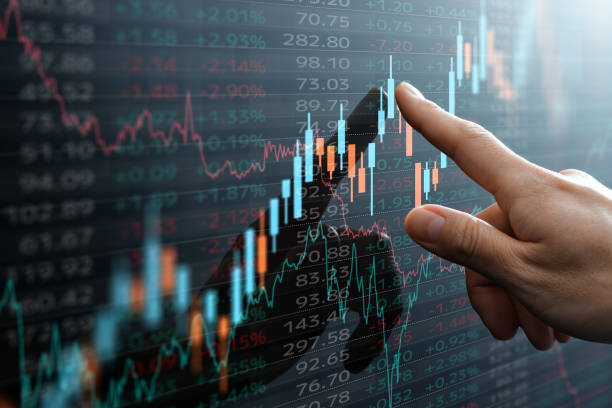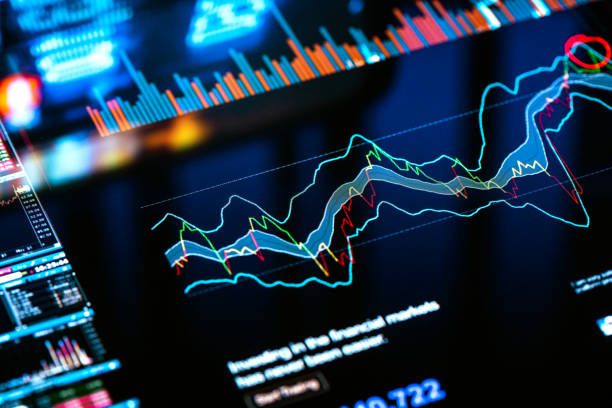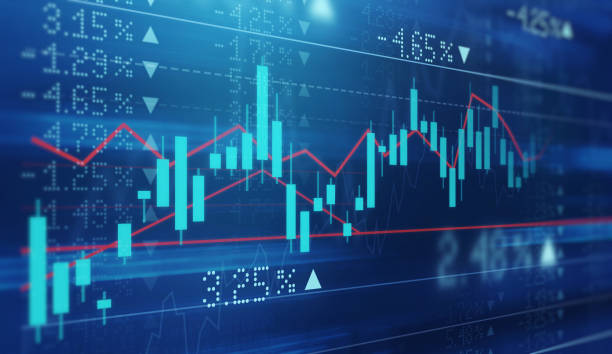Introduction:
Stock market trends, or the movement of the stock market, are influenced by many factors, with global events having the most significant impact. Whenever a major global event occurs, whether economic or political, it directly affects the stock market.
These events impact a country’s economic stability and investor confidence. Global events lead to volatility in the stock market, bringing both risks and opportunities for investors. In this article, we will understand how global events affect stock market trends and how investors can benefit from them.
Economic Crises and Stock Market Trends

Economic crises such as financial recessions and depressions have the most impact on the stock market. When the global economy is down, investor confidence is low, and stock prices fall. The 2008 global financial crisis is a prime example. This crisis affected stock markets worldwide and pushed major economies into recession.
During this crisis, extreme volatility was observed in the stock markets, and investors sold stocks to secure their investments. Stock market recovery was also seen after economic crises, but it takes time, and investors need to remain cautious.
Political Events and Their Impact on the Stock Market
Political events, such as elections, government changes, and international relations, also affect stock market trends. When political stability is present, investor confidence is high, and stock prices remain stable. However, during political uncertainty, such as during elections or government changes, fluctuations in the stock market are observed.
For example, there was significant volatility in the UK and European stock markets after Brexit. Political decisions and policies also directly affect the stock market, such as trade agreements and tax policies. Investors should monitor political developments to adjust their investment decisions accordingly.
Natural Disasters and Their Economic Impact
Natural disasters such as earthquakes, hurricanes, and floods also affect stock markets. After such disasters, economic activity in the affected regions is disrupted, and businesses face financial losses. These disruptions also impact the stock market.
For example, the 2011 earthquake and tsunami in Japan significantly impacted the Japanese stock market. Stocks of companies located in disaster-affected areas tend to fall, and investor sentiment becomes negative. There is also a recovery phase after natural disasters, during which stock markets gradually recover, but investors need to update their investment strategies considering long-term effects.
Global Pandemics and Stock Market Volatility
Global pandemics like COVID-19 have impacted stock markets at an unprecedented level. During the pandemic, global economies shut down, and business operations were disrupted. As a result, severe volatility was observed in the stock markets.
After the COVID-19 outbreak, stock markets saw sharp declines and then gradual recovery. Along with the pandemic’s impact, governments and central banks introduced economic stimulus packages and monetary policies that helped support the stock markets. Investors also adjusted their short-term and long-term investment strategies after the market volatility.
Trade Wars and Their Impact on Stock Markets

Trade wars, in which countries engage in disputes over their trade policies, significantly impact stock markets. When countries impose tariffs and trade barriers, global trade and supply chains are disturbed. These disturbances affect the stock market, where companies dependent on international trade see their stock prices fall.
For example, the US-China trade war had a considerable impact on global markets. Despite trade tensions, stock markets recovered, and investors closely monitored trade policies and global economic conditions.
Technological Advancements and Stock Market Trends
Technological advancements also shape stock market trends. When new technologies are introduced, such as artificial intelligence and blockchain, new opportunities and challenges arise in the market. Stocks of technology companies providing innovative solutions tend to rise.
For example, the technology sector saw significant gains in the stock market in 2020, largely due to the rise of digital transformation during the pandemic. After technological developments, investors should focus on emerging technologies to explore investment opportunities.
International Relations and Economic Sanctions
International relations and economic sanctions also affect stock market trends. When countries impose sanctions against each other, global trade and investment flows are impacted. The results of economic sanctions lead to fluctuations in stock markets, and stock prices of affected countries fall.
example, sanctions against Iran impacted the Iranian stock market. Considering changes in international relations and diplomatic decisions, investors should diversify their investments to mitigate geopolitical risks.
Central Bank Policies and the Stock Market
Central bank monetary policies also influence stock markets. Central banks, such as the Federal Reserve and the European Central Bank, shape market conditions through their interest rates and monetary policies. When central banks cut interest rates, stock markets benefit because low interest rates increase borrowing and investment. Conversely, when interest rates rise, stock markets are negatively affected. By tracking changes in central bank policies, investors can adjust their investment decisions.
Market Sentiment and Psychological Factors
Market sentiment and psychological factors also influence stock market trends. When investor sentiment is positive, stock prices rise, and the market is bullish.
When sentiment is negative, the market is bearish, and stock prices fall. Psychological factors such as fear and greed drive stock market trends. For example, investor sentiment changes based on market rumors and news, which impacts stock prices. Investors should base their investment decisions on understanding market sentiment.
Global Investment Flows and Stock Market Impact

Global investment flows also affect stock market trends. When global investors shift their investments from one region to another, it impacts stock markets. For example, increased investment flows into emerging markets result in a bullish trend in those markets.
Conversely, when global investors move their capital to safer assets or regions, affected markets may experience declines. Investors should track global investment trends and capital flows to diversify their portfolios and avoid market fluctuations.
Future Outlook and Strategic Planning
Finally, future outlook and strategic planning also shape stock market trends. When investors predict future trends and market conditions, they adjust their investment strategies accordingly. To understand future trends, investors should closely monitor global events, economic indicators, and market research.
Through strategic planning, investors can achieve their long-term goals and navigate market volatility. Effective strategic planning and market research allow investors to manage their portfolios and align with changes in market trends.
